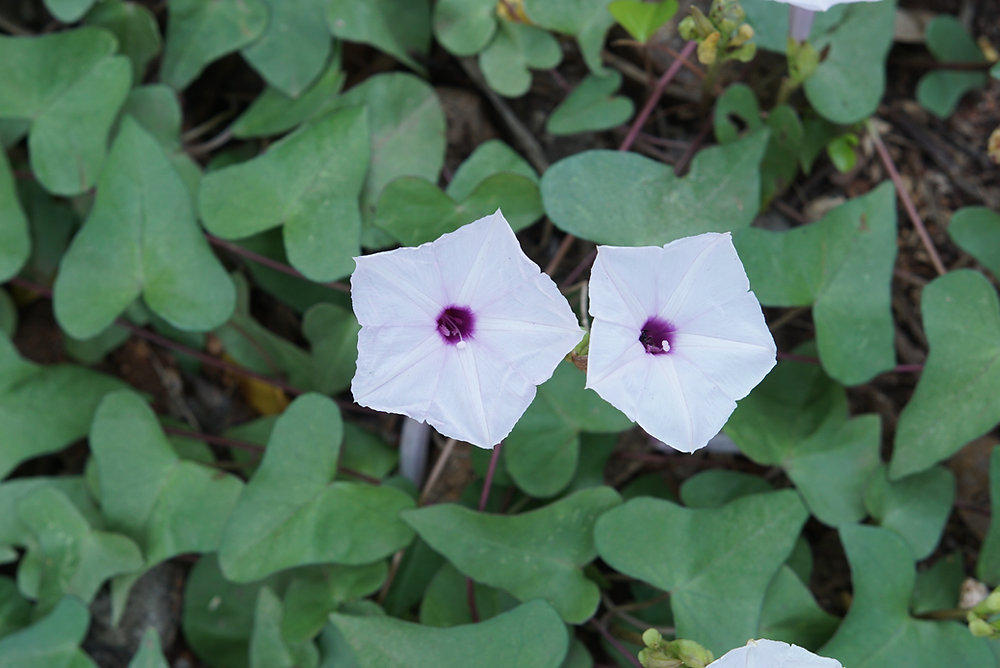DEPARTMENT OF BOTANY
MEDICINAL PLANTS
Ipomoea sepiaria Roxb.
Family: Convolvulaceae
Common Name: Purple Heart Glory
Vernacular Names: Ban Kalmi (Hindi), Lakshmana (Sanskrit), Taalikkirai (Tamil), Thiruthali (Malayalam)
Plant Description
Ipomoea sepiaria is a slender, twining, perennial herb that belongs to the Convolvulaceae family.
Habit: Herb
Stem: Trailing or climbing, up to several m long, pilose to glabrous. Circular with short conical spiny ridges at certain places.
Leaves: Simple, alternate, Leaf-blades ovate to lanceolate, truncate to hastate or sagittate at the base, acute at the apex, glabrous except for puberulous margins
Root: Tuberous perennial
Flowers: Cymes, funnel shaped few–many flowered, rather dense, Sepals elliptic-oblong to ovate, obtuse to subacute, glabrous. Corolla pink to almost white, sometimes with purple throat
Fruit: Globose and glabrous capsule
Seeds: Densely tomentose
Medicinal Properties
• The root of the Ipomoea sepiaria plant is used to treat infertility and leucorrhea.
• The plant is known for its laxative activity in folklore.
• The leaves and roots of the plant have been shown to enhance intestinal motility.
• In Kerala, the juice of the plant is used in the monsoon season as a diuretic, hypotensive, uterine tonic, de-obstruent, and antidote to arsenic poisoning.
• The plant is aphrodisiac and possess anti-ulcer properties.
